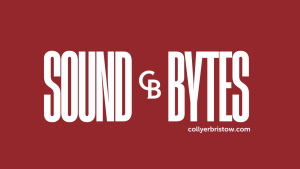- Banking & financial disputes
- Commercial disputes

Shorter Reads
Coronavirus and D&O insurance policies – will we see an increase in claims?
It is anticipated that some businesses may face claims relating to their poor planning for and reactions to the COVID-19 crisis. An increase can be expected in claims on directors and officers (D&O) insurance policies.
2 minute read
Published 4 June 2020
Key information
- Specialisms
- Dispute Resolution
- Business
The decisions made and actions taken, or not taken, by companies and their directors in response to the COVID-19 crisis are being intensely scrutinised by regulators, shareholders, and creditors alike. It is anticipated that some businesses may face claims relating to their poor contingency planning and their practical and wider reactions to the crisis. So, an increase can be expected in claims on directors and officers (D&O) insurance policies.
These insurance policies cover directors and officers for claims (and associated legal costs) arising from acts or omissions while managing a company. The extent of the cover is dependent on the wording of the individual policy. The policy wording may be wide and so extend to cover where shareholder litigation arises in connection with a misleading statement issued by a director (whether in relation to COVID-19 or otherwise) as well as, for instance, where liquidators pursue a director to recover losses incurred as a result of wrongful trading. The existence of the cover can be an incentive to litigation. Directors may not have the wherewithal to satisfy a judgment obtained against them, but D&O insurance can incentivise prospective claimants by providing a route to recovery where litigation might otherwise have been futile.
Class actions and directors’ and officers’ liabilities
Several class actions have already emerged in the US against companies and their managers in connection with COVID-19 and these are examples of cases that may lead to claims on D&O policies.
Disgruntled shareholders commenced a claim against Norwegian Cruise Lines and its directors, after emails were exposed in which senior members of staff encouraged employees to downplay the virus and keep pressure on customers to maintain bookings. The emails exposed, amongst other alleged misstatements, suggestions by staff that the virus could not survive in warmer climates and that customers should book vacations now to avoid a “huge surge in demand”. In the days after these emails were leaked, the company’s shares fell by almost 53%, causing significant losses for shareholders.
A similar class action has been commenced by a shareholder against the communication platform, Zoom, accusing the company and its senior managers of concealing shortcomings in the app’s software encryption. The increased attention caused by the platform’s surge in popularity has brought to light the company’s data security and encryption software flaws, the exposure of which has caused a decrease in take up and consequent decline in share value. Readers may be aware that a number of companies, including Tesla, have recently banned employees from using the platform.
It remains to be seen whether similar claims will be commenced against directors in the UK, for instance in connection with the publishing of misleading statements or dishonest omissions (under sections 90 and/or 90A of the Financial Services and Markets Act 2000).
Claims by Insolvency Practitioners
Insolvency is another area potentially leading to D&O claims. Company directors will face intense scrutiny as insolvency practitioners (IPs) carry out their statutory duty to consider whether any claims ought to be made against them. The government’s planned temporary suspension of liability for wrongful trading may bring relief for some. However, directors must still observe all their other ordinary duties and any serious failures could lead to investigations and litigation.
Litigation funding
Given the economic downturn caused by COVID-19, many would-be claimants may be facing serious cashflow issues, which makes the prospect of costly litigation unattractive, but litigation funders could step in. Third-party litigation funding allows claimants to de-risk in a dispute and removes the barrier of potentially significant legal fees. Funders will undoubtedly be attracted to the most severe cases of misconduct, bringing into play the capacity to finance very large claims on behalf of hundreds or even thousands of shareholders. The funder will not, however, finance the claim unless, if a judgement is obtained, then there will be assets available to meet it. So, if the funder is aware that there is a D&O insurance policy available, this may be an incentive to funding and so an incentive to the litigation itself taking place. Similarly, where IPs have identified a possible claim against directors, the availability of litigation funding and a D&O policy that provides cover may be the difference between bringing the claim or not. Over the past few years there has been a significant growth in the market for the third-party funding of insolvency claims and this will continue and doubtless be hastened by the wide damage that the COVID-19 crisis has inflicted on the business world.
Related content
Shorter Reads
Coronavirus and D&O insurance policies – will we see an increase in claims?
It is anticipated that some businesses may face claims relating to their poor planning for and reactions to the COVID-19 crisis. An increase can be expected in claims on directors and officers (D&O) insurance policies.
Published 4 June 2020
Associated sectors / services
The decisions made and actions taken, or not taken, by companies and their directors in response to the COVID-19 crisis are being intensely scrutinised by regulators, shareholders, and creditors alike. It is anticipated that some businesses may face claims relating to their poor contingency planning and their practical and wider reactions to the crisis. So, an increase can be expected in claims on directors and officers (D&O) insurance policies.
These insurance policies cover directors and officers for claims (and associated legal costs) arising from acts or omissions while managing a company. The extent of the cover is dependent on the wording of the individual policy. The policy wording may be wide and so extend to cover where shareholder litigation arises in connection with a misleading statement issued by a director (whether in relation to COVID-19 or otherwise) as well as, for instance, where liquidators pursue a director to recover losses incurred as a result of wrongful trading. The existence of the cover can be an incentive to litigation. Directors may not have the wherewithal to satisfy a judgment obtained against them, but D&O insurance can incentivise prospective claimants by providing a route to recovery where litigation might otherwise have been futile.
Class actions and directors’ and officers’ liabilities
Several class actions have already emerged in the US against companies and their managers in connection with COVID-19 and these are examples of cases that may lead to claims on D&O policies.
Disgruntled shareholders commenced a claim against Norwegian Cruise Lines and its directors, after emails were exposed in which senior members of staff encouraged employees to downplay the virus and keep pressure on customers to maintain bookings. The emails exposed, amongst other alleged misstatements, suggestions by staff that the virus could not survive in warmer climates and that customers should book vacations now to avoid a “huge surge in demand”. In the days after these emails were leaked, the company’s shares fell by almost 53%, causing significant losses for shareholders.
A similar class action has been commenced by a shareholder against the communication platform, Zoom, accusing the company and its senior managers of concealing shortcomings in the app’s software encryption. The increased attention caused by the platform’s surge in popularity has brought to light the company’s data security and encryption software flaws, the exposure of which has caused a decrease in take up and consequent decline in share value. Readers may be aware that a number of companies, including Tesla, have recently banned employees from using the platform.
It remains to be seen whether similar claims will be commenced against directors in the UK, for instance in connection with the publishing of misleading statements or dishonest omissions (under sections 90 and/or 90A of the Financial Services and Markets Act 2000).
Claims by Insolvency Practitioners
Insolvency is another area potentially leading to D&O claims. Company directors will face intense scrutiny as insolvency practitioners (IPs) carry out their statutory duty to consider whether any claims ought to be made against them. The government’s planned temporary suspension of liability for wrongful trading may bring relief for some. However, directors must still observe all their other ordinary duties and any serious failures could lead to investigations and litigation.
Litigation funding
Given the economic downturn caused by COVID-19, many would-be claimants may be facing serious cashflow issues, which makes the prospect of costly litigation unattractive, but litigation funders could step in. Third-party litigation funding allows claimants to de-risk in a dispute and removes the barrier of potentially significant legal fees. Funders will undoubtedly be attracted to the most severe cases of misconduct, bringing into play the capacity to finance very large claims on behalf of hundreds or even thousands of shareholders. The funder will not, however, finance the claim unless, if a judgement is obtained, then there will be assets available to meet it. So, if the funder is aware that there is a D&O insurance policy available, this may be an incentive to funding and so an incentive to the litigation itself taking place. Similarly, where IPs have identified a possible claim against directors, the availability of litigation funding and a D&O policy that provides cover may be the difference between bringing the claim or not. Over the past few years there has been a significant growth in the market for the third-party funding of insolvency claims and this will continue and doubtless be hastened by the wide damage that the COVID-19 crisis has inflicted on the business world.
Associated sectors / services
- Banking & financial disputes
- Commercial disputes
Need some more information? Make an enquiry below.
Enjoy reading our articles? why not subscribe to notifications so you’ll never miss one?
Subscribe to our articlesMessage us on WhatsApp (calling not available)
Please note that Collyer Bristow provides this service during office hours for general information and enquiries only and that no legal or other professional advice will be provided over the WhatsApp platform. Please also note that if you choose to use this platform your personal data is likely to be processed outside the UK and EEA, including in the US. Appropriate legal or other professional opinion should be taken before taking or omitting to take any action in respect of any specific problem. Collyer Bristow LLP accepts no liability for any loss or damage which may arise from reliance on information provided. All information will be deleted immediately upon completion of a conversation.
Close











































































